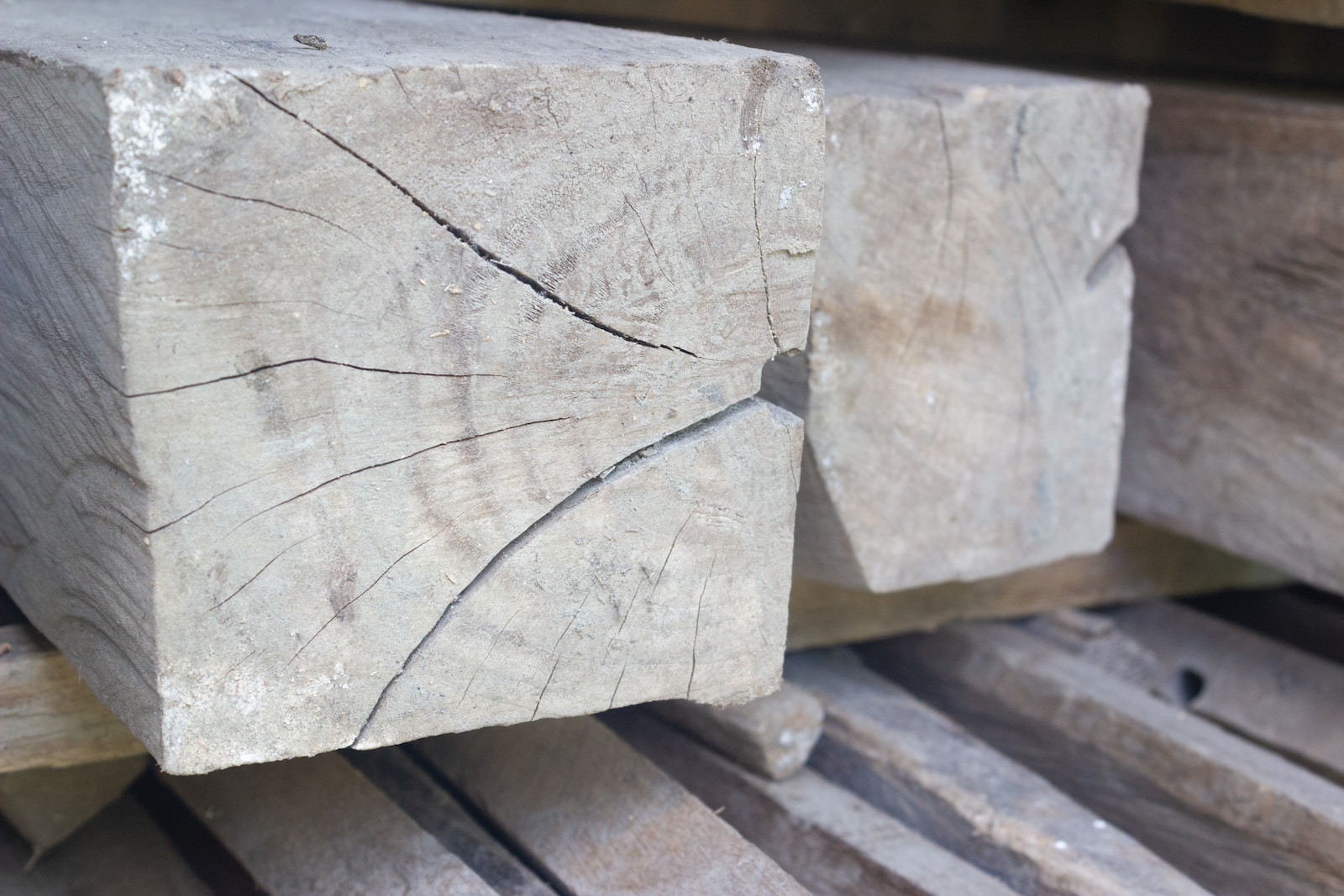Discover how much does deck replacement cost and get insights on factors that influence pricing. Learn how to budget effectively for your dream deck and make informed decisions. Having a deck on your property offers an experience like no other.
The joy one gets from the ability to go outside and relax on a deck is next to none as it offers you the opportunity to enjoy the outdoors from the comfort of your home. Read on to find out more, if you truly plan to replace your deck!
How much does deck replacement cost?
Contents
- 1 How much does deck replacement cost?
- 2 Factors affecting deck replacement costs
- 3 Budgeting tips for deck replacement
- 4 What are the potential long-term savings associated with different deck materials?
- 5 Can I reduce deck replacement costs by reusing any existing materials?
- 6 FAQs about how much does deck replacement cost
- 7 Final remarks on how much does deck replacement cost
Are you considering a deck replacement but unsure about the cost? Planning and budgeting for a new deck can be a daunting task, as the expenses can vary depending on various factors. However, understanding the average costs and the factors that influence them can help you make informed decisions and effectively plan your budget.
In this comprehensive guide, we will delve into the world of deck replacement costs, providing you with valuable insights, tips, and considerations to help you create your dream deck without breaking the bank. Overall, deck replacements range from $12,000 to $24,000 depending on several factors, which we will cover.
Factors affecting deck replacement costs
When it comes to estimating the cost of deck replacement, several factors come into play. Each component contributes to the final expenses, and understanding these factors will assist you in making informed decisions. Let’s dive into the primary elements that impact the overall cost:
1. Size and Complexity of the Deck
The size and complexity of your deck play a significant role in determining the overall cost. Decks with intricate designs, multiple levels, and unique features like built-in seating or pergolas tend to require more materials and labor, thus increasing the expenses.
2. Material Selection
The materials you choose for your deck greatly influence the cost. Here are some popular options and their relative price ranges:
- Pressure-Treated Wood: This is the most affordable option, ranging from $15 to $30 per square foot.
- Cedar and Redwood: These premium wood choices can cost between $25 and $45 per square foot.
- Composite Decking: Made from a blend of wood fibers and recycled plastic, composite decking offers low maintenance but can range from $30 to $60 per square foot.
- PVC and Vinyl: These durable and low-maintenance options typically range from $45 to $75 per square foot.
It’s important to note that these prices can vary based on location and market conditions.
3. Labor Costs
Hiring professionals to build or replace your deck is a wise investment. Labor costs can vary depending on factors such as the complexity of the project, location, and contractor rates. On average, expect to spend between $25 and $40 per square foot for labor, which includes the construction, installation, and finishing touches.
4. Permits and Design Fees
Before starting any deck replacement project, you may need to obtain permits from your local municipality. Permit fees can range from $200 to $500 or more, depending on your location and the size of the project. Additionally, if you hire a professional deck designer, you may incur design fees, usually ranging from $500 to $2,000, depending on the complexity of the design.
5. Additional Features and Upgrades
If you desire extra features for your deck, such as lighting, built-in benches, or custom railings, they will impact the overall cost. These additions provide aesthetic appeal and enhance functionality but come with additional expenses. Consider your priorities and budget carefully when deciding on these extras.
6. Demolition and Removal Costs
If you are replacing an existing deck, there will be costs associated with the demolition and removal of the old structure. This cost can vary depending on the size of the deck, materials used, and the complexity of the removal process. On average, you can expect to pay between $500 and $1,500 for the demolition and disposal.
Budgeting tips for deck replacement
Now that you are aware of the key factors influencing the cost of deck replacement, let’s delve into some budgeting tips to help you plan for your outdoor oasis:
- Research and Obtain Multiple Quotes: Don’t settle for the first estimate you receive. Take the time to research and obtain quotes from multiple contractors. This will give you a better understanding of the average cost in your area and allow you to compare services and prices.
- Set a Realistic Budget: Determine your budget based on your financial situation and the value you expect from your deck. It’s essential to strike a balance between your desired features and what you can afford. Be sure to account for additional costs such as permits, design fees, and potential unforeseen expenses.
- Prioritize Essential Features: Make a list of the must-have features for your deck and prioritize them. This will help you allocate your budget wisely and focus on the elements that matter most to you. You can always add more features in the future as your budget allows.
- Consider Long-Term Costs: While upfront costs are important, don’t overlook the long-term maintenance and durability of different materials. For example, while composite decking may have a higher initial cost, it requires less maintenance and has a longer lifespan, potentially saving you money in the long run.
- Plan for Future Expansions: If you anticipate expanding your deck in the future, it’s wise to plan for it during the replacement process. Discuss your future plans with your contractor so that they can incorporate the necessary structural elements during the initial build, reducing costs when you decide to expand.
- Explore Financing Options: If the upfront cost of deck replacement exceeds your budget, consider exploring financing options. Home equity loans, personal loans, or credit lines may provide you with the flexibility to complete your project while managing your cash flow effectively.
- DIY vs. Hiring Professionals: While taking the DIY route may seem cost-effective, building or replacing a deck requires expertise and precision. Unless you have prior experience and the necessary skills, it’s advisable to hire professionals. Their knowledge and craftsmanship will ensure a safe, durable, and visually appealing deck.
What are the potential long-term savings associated with different deck materials?
When considering deck replacement, it’s essential to factor in the potential long-term savings associated with different deck materials. While upfront costs may vary, certain materials can offer significant advantages and cost savings over time. Let’s explore the potential long-term savings associated with various deck materials:
Composite Decking
Although composite decking may have a higher initial cost, it can result in considerable long-term savings. Here’s why:
- Low Maintenance: Unlike wood, composite decking doesn’t require staining, sealing, or painting. This eliminates the need for expensive maintenance products and labor.
- Durability: Composite materials are highly resistant to rot, warping, and insect damage, reducing the need for costly repairs or replacements.
- Longevity: Composite decking has a longer lifespan than traditional wood, which means you won’t have to replace it as frequently, saving you money in the long run.
PVC and Vinyl
While PVC and vinyl decking options may have a higher upfront cost, they offer several long-term savings benefits:
- Low Maintenance: PVC and vinyl decking are virtually maintenance-free. They don’t require staining, painting, or sealing, saving you both time and money.
- Longevity: These materials are highly durable, resisting mold, mildew, and moisture damage. They can withstand harsh weather conditions, reducing the need for repairs or replacements.
- Lifespan: PVC and vinyl decking can have an extended lifespan compared to wood, ensuring you won’t have to incur replacement costs as frequently.
Pressure-Treated Wood
Pressure-treated wood is a popular and cost-effective option for decking. While it may have a lower upfront cost, it’s important to consider the long-term savings as well:
- Affordability: Pressure-treated wood is typically more budget-friendly compared to other materials, making it an attractive option for cost-conscious homeowners.
- Durability: With proper maintenance, pressure-treated wood can withstand the elements and last for many years. Regular staining and sealing can help preserve its integrity and reduce the likelihood of premature decay or rot.
By considering these potential long-term savings associated with different deck materials, you can make an informed decision that aligns with your budget and long-term goals. Remember, the initial investment may vary, but the long-term benefits can outweigh the upfront costs, providing you with a beautiful and durable deck that stands the test of time.


Can I reduce deck replacement costs by reusing any existing materials?
If you’re planning a deck replacement project, you might be wondering if you can reduce costs by reusing any existing materials. While it may seem tempting to repurpose materials, there are several factors to consider before making a decision. Let’s delve into the details:
- Condition of Existing Materials: The first aspect to assess is the condition of the existing deck materials. Are they still structurally sound and in good shape? If the materials have deteriorated significantly, reusing them may compromise the safety and longevity of the new deck. It’s crucial to prioritize structural integrity and ensure the deck is built with reliable and durable materials.
- Compatibility with New Design: Another consideration is whether the existing materials align with the design and aesthetic of the new deck. Reusing materials may limit your options or clash with the desired look and feel of the revamped outdoor space. It’s important to envision the final result and determine if reusing materials will achieve the desired outcome.
- Compliance with Building Codes: Building codes and regulations change over time, and materials that were once acceptable may no longer meet current standards. Before reusing any existing materials, ensure they comply with local building codes. Non-compliant materials could result in inspection failures or additional costs to bring the deck up to code.
- Cost Savings: Reusing materials can potentially reduce the overall cost of the project, as you won’t need to purchase entirely new materials. This can be particularly beneficial if the existing materials are still in good condition and can be incorporated seamlessly into the new deck design.
- Environmental Impact: Reusing materials aligns with sustainable practices by reducing waste and minimizing the need for new resources. It’s an eco-friendly approach that can contribute to a more environmentally conscious deck replacement project.
- Labor and Time: Reusing materials may require additional labor and time for inspection, cleaning, and refurbishment. Factor in the potential labor costs associated with salvaging and preparing the materials for reuse. Determine if the time and effort required outweigh the cost savings.
Ultimately, the cost-benefit analysis should take into account the specific circumstances of your deck replacement project. Consulting with a professional contractor or deck builder will provide valuable insights and recommendations based on their expertise.
FAQs about how much does deck replacement cost
Q: Are there any ongoing maintenance costs for a deck?
A: Yes, decks require regular maintenance to preserve their appearance and longevity. This includes cleaning, staining, sealing, and occasional repairs. Consider these costs when budgeting for your deck.
Q: Can I reduce deck replacement costs by reusing some materials?
A: In some cases, it may be possible to reuse certain materials like framing or substructure if they are in good condition. However, keep in mind that older materials may not meet current building codes, and reusing them could compromise the safety and structural integrity of your deck.
Q: Will my homeowner’s insurance cover deck replacement costs?
A: Generally, homeowner’s insurance policies do not cover deck replacement costs unless the damage is a result of a covered peril, such as a fire or severe storm. Review your policy or consult with your insurance provider to understand your coverage.
Final remarks on how much does deck replacement cost
Knowing how much does deck replacement cost is essential to any deck building plans. Investing in deck replacement can significantly enhance the beauty, functionality, and value of your home. By understanding the factors influencing the cost, budgeting effectively, and making informed decisions, you can create your dream outdoor oasis without breaking the bank.
Remember to research, obtain multiple quotes, prioritize your needs, and plan for the long term. With careful planning and the help of professionals, you’ll be well on your way to enjoying a stunning deck that will provide years of enjoyment for you and your loved ones.







